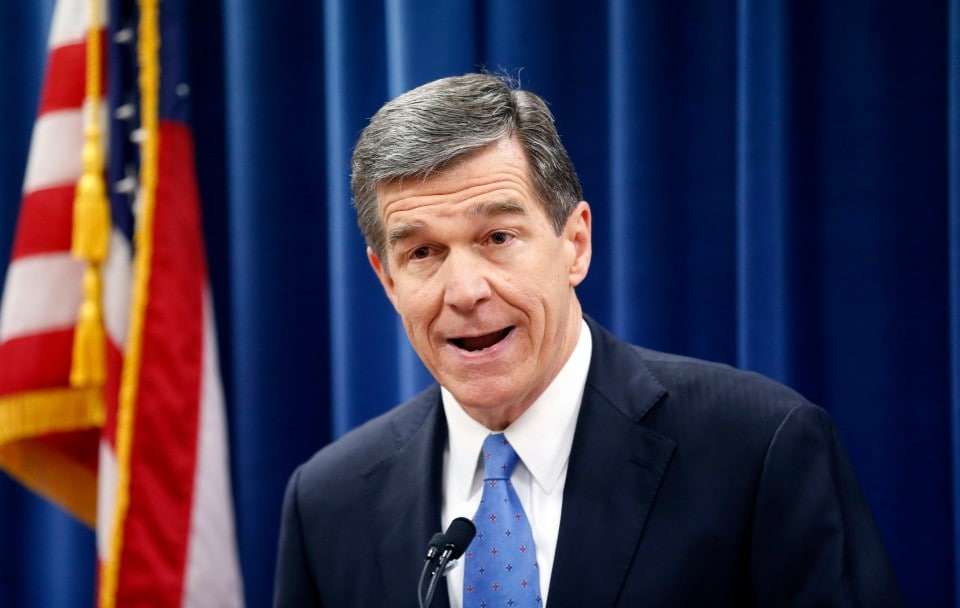The Volokh Conspiracy
Mostly law professors | Sometimes contrarian | Often libertarian | Always independent
What's really the matter with North Carolina?

Since the election, many commentators have raised the alarm about post-election efforts by North Carolina Republicans to limit the power of the incoming governor - a Democrat - in a lame-duck legislative session. The new reforms drastically reduce the number of officials the governor can appoint within state government, require legislative confirmation of Cabinet-level appointments, eliminate partisan majorities in the state board of elections and strip the governor of the power to make appointments to the University of North Carolina Board of Trustees.
These reforms, which largely rescind prior legislative grants of power to the governor, were hastily cobbled together and passed without significant deliberation. This is anything but responsible behavior. Yet, as seems lost on many commentators (including some historians), this sort of thing is par for the course in the Tarheel State.
[interstitial_link]North Carolina's jarring GOP power grab feels familiar[/interstitial_link]
What's the history? John Hood provides a quick summary:
Precisely four times in modern North Carolina history, voters have elected a new governor or lieutenant governor of one party and legislative majorities of the other party. In all four instances, the legislature stripped the newly elected executives of some power.
In the first three instances - Republican Gov. Jim Holshouser's election in 1972, Republican Gov. Jim Martin's election in 1984, and Republican Lt. Gov. Jim Gardner's election in 1988 - a Democratic legislature did the stripping. As Martin's biographer, I'm most familiar with his experience. Lawmakers limited his ability to staff agencies (including the State Board of Elections), subjected other appointments to constraints or confirmation, and withdrew gubernatorial control over state construction and administrative hearings, among other actions.
In each case, Republicans cried foul. Democrats insisted they were simply carrying out North Carolina's longstanding preference for legislative supremacy.
Rob Christensen, chief political writer for the News & Observer, adds additional context:
For Democrats to complain about Republicans' political patronage efforts is sort of like being called ugly by a frog.
When Gov. Pat McCrory took office in 2013, the GOP legislature expanded the number of positions exempt from civil service protections from 400 under Democratic Gov. Bev Perdue to 1,500 - the highest cap ever. This allowed McCrory to hire more Republicans.
Now, under a bill awaiting McCrory's signature or veto, lawmakers are proposing to reduce the number to 425 in what is apparently an effort to protect Republican state employees and prevent the hiring of Democrats.
But Democrats invented this practice. The 1985 Democratic legislature placed the first cap ever on newly elected Republican Gov. Jim Martin, limiting him to 325 exempt positions.
The whole business of mass firings in state government pretty much began with the election of Democrat Kerr Scott in 1948, a Jacksonian figure who beat the more conservative machine. North Carolina was a one-party state then so this was factional Democratic warfare.
As Christensen and Hood document, there's a long history of this sort of thing in North Carolina and, as Tyler Cowen discusses, the most recent shenanigans are "a pretty traditional power grab within established constitutional structures."
This history does not excuse what North Carolina Republicans have done. Christensen notes that Republicans have gone farther than Democrats did in the past, and Hood stresses the impropriety of ramming these sorts of measures through in a rushed, lame-duck session for transparently partisan reasons. Writes Hood:
While I think many provisions that lawmakers passed this month are either needed or at least have potential, they were major changes in the structure and operation of state government. They deserved more deliberation than a brief Christmastime session allowed.
When you make policy through an orderly process of committee hearings, robust debate, and sufficient time for lots of people to weigh in, you increase both the quality of legislation and the credibility of legislators. Routinely, such a process uncovers drafting errors or unforeseen complications that can be addressed before passage.
I would add that such reforms are much more credible when they are enacted in a way that does not create immediate partisan advantage, as could be accomplished if the reforms take effect only after an intervening election.
A much quoted column by David Leonhardt complains these actions show Republicans bringing a gun to a knife fight - but that analogy works only if we recognize that these battles began as ordinary fisticuffs and recognize the impropriety of bringing any weapons to such conflicts in the first place. If you don't like to be on the receiving end of retaliatory escalation (and who does?), then don't take the first swing.
As with judicial nominations, each side has engaged in escalating retaliation and has complained when the other responds in kind (even if they would have done the same had the positions been reversed). It's perfectly reasonable to decry the escalation, but disingenuous to pretend as if only one party punches back twice as hard.
One last quote from Hood:
Democrats upset with the special session might have been more persuasive had they chosen a different rhetorical strategy. Every time they accused GOP lawmakers of "unprecedented" acts, of "contempt for democracy," of being "sore losers" and the like, all Republicans heard was hypocrisy. What happened in 2016 was different in detail, but not much in degree, from what happened in the past. A better argument would have been, "Yes, we Democrats went too far when we were in power. It often came back to bite us. Don't make the same mistake."
I am all for breaking the cycle. That will inspire greater trust and long-term thinking, from both sides.


Show Comments (0)